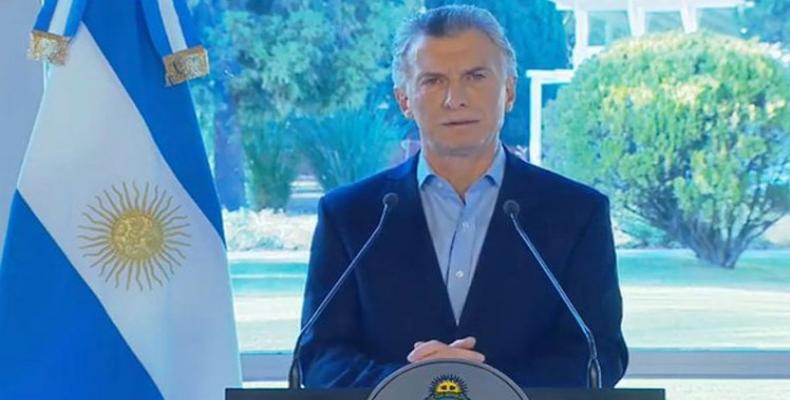Buenos Aires, August 14 (RHC)-- Argentina's right-wing president Mauricio Macri has announced economic measures that for the first time in his presidency would be in favor of the workers and the poor, in a move to attract voters after suffering a significant loss in last Sunday's primary elections. The voting showed him losing to the progressive coalition in the first round of the October presidential elections.
"Regarding the election results, know that I understood you. What happened is purely and exclusively my responsibility," Macri said before announcing measures that will he says will help "17 million workers and their families."
The electoral intention of the "relief package" is too obvious: try to capture voters before the October elections. To that effect, the right-wing president proposes that workers receive an additional $34 income in both September and October as his government will assume the payment of workers' contributions to social security.
Public sector workers, military and social security employees will receive a $86 bonus at the end of August. Students who receive the Progress scholarships will receive a 40 percent increase in their grants.
Unemployed, informal Argentinian workers and those who earn less than the minimum wage will receive two additional payments of the "Universal Allowance Per Child" (AUH), a poverty-related bonus which is granted to parents who have children under 18 or children with disabilities.
In addition to all that, a technical table will be convened to increase the minimum vital salary for Argentinian workers. High-income people will receive a $34 reduction in income taxes per month. This group will also receive a refund of taxes paid in 2019, which could reach $205 in the case of a family having two children and a $1,365 monthly gross income.
To capture sympathies within the business sector, Macri proposed that small and medium-sized companies can pay their outstanding debts with the Federal Administration of Public Income (AFIP) within the next 10 years. And finally, the gasoline price will be frozen for 90 days, that is, for a period that goes a little beyond the second round of the presidential elections later this year.
In the primary elections carried out on August 11, the landslide victory by Alberto Fernandez and Cristina Fernandez dealt a severe blow to Macri's reelection chances and roiled financial markets on fears Argentina could abandon neoliberal policies.
The peso, the Argentinian currency, closed at 55.9 pesos per U.S. dollar on Tuesday, after touching 59 to the dollar earlier in the day. The currency had hit an all-time low on Monday of 65 to the dollar, a drop of 30 percent.
The meltdown in Argentina's currency, stocks and bonds, which has been the worst since the 2001 debt crisis, sent shock waves through emerging markets.


